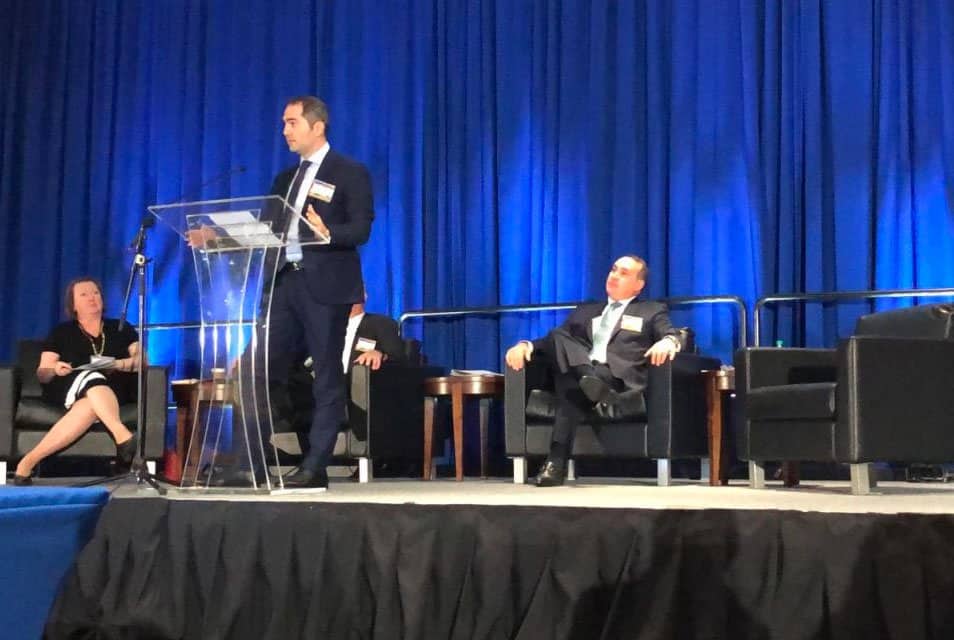Last week, I had the honor to join a great panel discussion with my fellow panelists in Houston at the Harris County Transportation Conference, representing MTS Logistics in the heart of one of the largest cities in the U.S.
The panel was about creating capacity in Houston, and the challenges faced by shippers, forwarders, ports, and carriers there. My fellow panelists included Janet Nodar of JOC, Roger Guenther of the Port of Houston, and Giancarlo Morgera of MSC.
Of course, capacity in Houston was widely discussed in 2018, based on new production facilities coming online starting this year. During our panel, we explored these ongoing capacity concerns from a variety of different angles.
Within our panel, Roger advised on the Port of Houston’s newest investments in the city’s shipping infrastructure, as well as the Port’s expectations and future outlook. The Port of Houston has really succeeded in attracting importers to use the city as a Distribution Hub.
Giancarlo noted that carriers are watching the new developments in the city closely and preparing for them. Being with MTS Logistics on the NVOCC side, I agreed with carrier concerns about the difficulty of them receiving regular forecasts from exporters. Furthermore, I believe this continues to be a main challenge for everyone within the supply-chain, including warehouses, truckers, rail operators, ports, and carriers.
Most in the shipping industry are aware that resin is a tradable commodity and that many factors affect exporters’ plans. As a commodity, tariffs/duties, oil and gas prices, political issues, and other outside factors all affect plastics’ shipping trends. On the panel, I mentioned that MTS Logistics internal data shows that in 2018, 50% of polyethylene volume shipping to Asia and Africa happens within 3 months of the year. That’s a lot compacted into 3 months, while the other 50% is spread over 9 months. As one of the largest shippers in the Port of Houston, our data can be used as a baseline for planning resin trade, helping identify where capacity issues really start and end.
Everyone on the panel, myself included, agreed that our focus should be on the areas we can control. If we work together and communicate better as shippers, warehouses, truckers, carriers, and forwarders, we can overcome potential challenges in 2019 and beyond.





